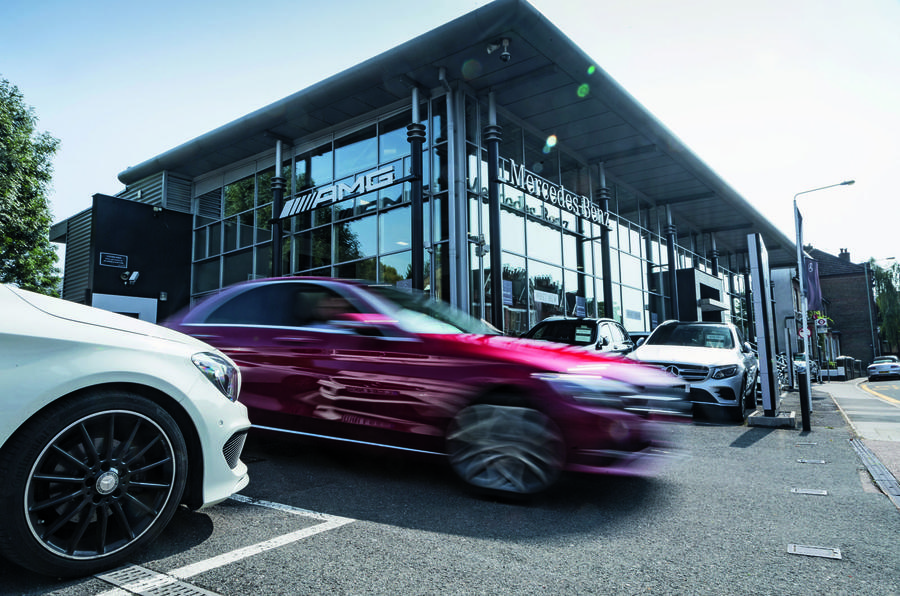The UK had its best year for car sales since the pandemic in 2023, as more than 1.9 million were registered, according to new figures from the Society of Motor Manufacturers and Traders (SMMT).
Growth of 289,000 over 2022’s 30-year low of 1.6 million sales was driven entirely by fleet customers, who registered 1.1 million cars alone, a 38.7% rise year on year.
The private market remained stable, with 818,000 registrations, as the cost of living crisis and high interest rates continued to bite and stalled further growth.
Last year’s numbers were still 17.7% down on 2019’s high of 2.3 million.
Despite this, SMMT boss Mike Hawes says the industry "faces 2024 with a lot more confidence and optimism” than the year before and predict it to push on further to 1.97 million.
Key to the growth was the record take-up of EVs, which accounted for one in six cars registered.
This was again driven by business and fleet buyers, thanks to the compelling tax incentives of going electric: benefit-in-kind tax rates will sit at just 2% until at least 2025.
Of the total 315,000 EVs registered in 2023 (up 50,000 on 2022), 242,235 were sent to fleets, meaning just 8.9% were private sales. In comparison, combined EV sales in 2020 and 2021 totalled 298,932.
Meanwhile, hybrids recorded 27.1% growth in 2023 to reach a 12.6% market share, while plug-in hybrids were up 39.3% (for 7.4% of the market).
Buyers again showed preference for superminis and SUVs, which accounted for 29.8% (around 86,000) and 28.6% (82,000) of total car sales. Crossovers such as the Ford Puma put in another strong showing, taking a 28.3% (81,000) slice.
These three segments have been the most popular since 2013.
“With vehicle supply challenges fading, the new car market is building back with the best year since the pandemic,” said SMMT chief Mike Hawes.
“Energised by fleet investment, particularly in the latest EVs, the challenge for 2024 is to deliver a green recovery.”
Call to halve VAT on EVs
The SMMT, backed by the automotive industry, has used the data to again call on the government to reintroduce EV incentives for private buyers after it revealed that consumer demand has flattened.









Join the debate
Add your comment
Seems pretty clear to me that the general public have no interest in buying an EV with their own money yet. And as more hit the used market, their residual value will fall further still making the cost of ownership only increase. Flooding the market with far more EVs than there is a real market for will NOT help with their adoption.
It really doesnt matter what a new one costs to buy, it matters how much they cost to own. And thats before the cost and inconvenience of charging (for those without off street parking), concerns over battery life, and reliability, outdated tech, insurance etc put even more people off.
Car manufacturers have delayed sales of EVs in December 2023, so that they can be included in the new ZEV mandate quotas for 2024. This means that sales of EVs in December have been artificially delayed, to help manufacturers hit the new targets starting from January 1st. The SMMT should be acknowledging this factor.
It would still be a good idea to reduce VAT on EV sales however. Air pollution disproportionally impacts the poorest people in society, because they tend to live in more polluted areas. Next to busy roads, etc. So actually a VAT reduction on EVs would benefit the poorest in society in a wider context.
No. A new car is a luxury purchase and with taxes at record levels they should not be used to subsidise the purchase of luxury goods. There are so many more deserving places our tax £ should be spent.
Yes there are.
And we all know that the manufacturers can afford to reduce the list prices of these EV's, as they have shown numerous times recently. They choose not to because. as they tell us, they're chasing higher margins than they used to.